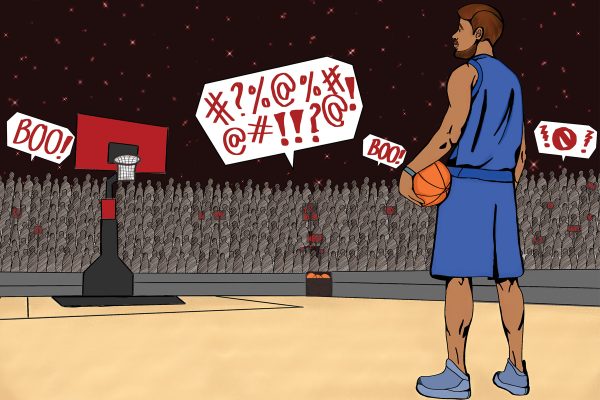AP Language: a new decision for juniors

Starting next school year, juniors will no longer have the option to take honors English 373. Instead, the honors track will be replaced by AP Language and Composition 383, forcing students to choose between taking a regular or an AP-level class.
Perspectives toward this curriculum change are specific to each student for a variety of reasons. An option with both benefits and drawbacks has been introduced, and students are encouraged to take note of them.
Bearing a transcript with AP classes certainly has its college appeal. Students not only reflect the quality of their intellect in being able to take these classes but also their drive and motivation in taking a rigorous course load.
AP classes can additionally allow students to ease the economic burden of college. The cost of taking an AP course in high school is minimal compared to the cost of enrolling in the same course at a university. If a student is capable of taking a college-level class while still in high school, AP tests provide the opportunity to do so, and students can receive college credit. All public universities in Illinois are required to accept a 3 or higher on AP exams for college credit, allowing students to use this credit toward graduation.
For many students, AP classes are necessary to fulfill their desired academic challenge. The classes are fast-paced and content-heavy, providing students with the opportunity to hone their work ethics and thought processes beyond their experiences in regular or honors-level classes.
While there is nothing wrong with providing an additional AP opportunity for juniors, there is a problem when another potentially beneficial opportunity is taken away.
Honors classes act as the stepping stone between regular and AP courses, supplying a middle ground for students who are prepared for a challenge but are not necessarily ready for the workload of a college-level class.
Only offering two classes with such a large difficulty gap between them does not account for the various steps of academic improvement, forcing some students to choose between a class that does not intellectually challenge them enough and overexertion in a rigorous course for which they may not yet be equipped.
As the junior year English options grow narrower, the senior year English options are expansive. Four regular, three honors and two AP class options are all available for seniors to pick from when assessing their potential in the subject of English.
Seniors, supposedly the most experienced students in the school, are given the opportunity for stepping-stone-level classes, while juniors are not. If anything, it should be the other way around.
Only offering a regular and AP level for a class also sends the message that Glenbrook North students are forced into APs. Honors English students would see AP Language and Composition as their only option because they would otherwise have to drop down to regular, an undesirable choice for some.
Ed Solis, instructional supervisor of the English department, said one of the reasons for this curriculum change is the college-appeal of AP classes. Pushing APs simply to attract colleges is not a path GBN should pursue if it means dismissing the true purpose of education.
This change can be good or bad for GBN and its students, and the only thing we can do is wait to see what happens.







